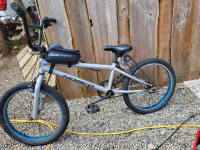Any reason this relay and button wouldn't work?
iRhapsody 250A 12V Relay, 4 Pin SPST High Current Control, Split Charge Switch

Well, it looks hefty, though the recommendation to use less than the max rating means that it isn't *really* able to handle the full rating (because it should be rated for what it could handle all day forever, unless it specifies a time and duty cycle, which it doesn't).
So consider it to really be capable of less than what it recommends, which is "try to stay 10 to 15% below what the rate is for" so less than 0.85 x 250A = 212A...how much less? Who knows....
Suprisingly they actually give the pickup (turn on) and dropout (turn off) votlages the coil requires to operate the relay, and the coil current and resistance, which is almost never provided for amazon/ebay/ali* etc parts. Those might be accurate, might not, given the other rating stuff above, but they probably are at least close.
Whether that relay would work or not; I can't say since I don't know how much current your system actually draws. Maybe? Probably? Worth a shot?
Probably the coil could handle the overvoltage you'll be giving it; you'll just have to check if it gets hot or not. To test that, just wire the coil itself to your switch and battery, don['t wire up the contacts yet. Turn the relay on and wait a few minutes. If the relay is hot, the coil is getting hot and heating it up. Whether that's a problem depends on how hot and whether there's airflow around the relay or if it's in a box or bag, etc. if it starts smoking, well, that's a fair sign of bad things happening.

The switch could switch the coil current easily enough, if that's what you want to use it for, to turn the relay on and off. How good the switch is? Dunno, never used that kind.



